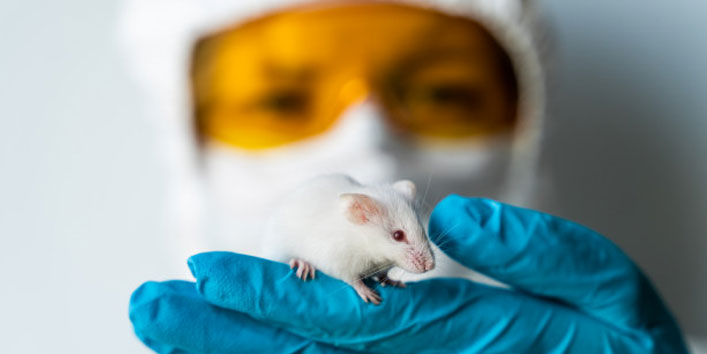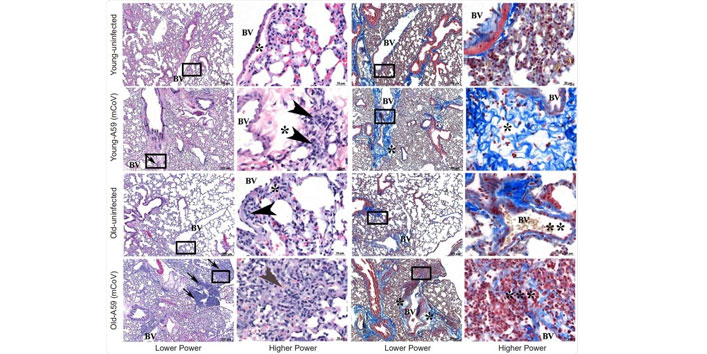A study conducted by researchers at the Washington University School of Medicine and Yale School of Medicine, New York University Langone Health claims that the keto diet can protect against COVID-19. Keto diet has high in fat and low in carbohydrates and has an excellent ability to minimize the clinical outcomes of COVID-19 in elderly patients by boosting immune-metabolic functions and preventing inflammation.
Since the crisis of the COVID-19 pandemic, many studies have revealed that age is the strongest risk factor related to the high mortality rate in people with severe acute respiratory syndrome coronavirus 2 or SARS-CoV-2 disease. In the US alone, around 80 percent of COVID-19 deaths were reported in people of more than 65 years of age.
Usually, the strength of the immune system in older adults is weak due to age-related impairment in T cell and B cell activation and inflammasome-related low-grade systemic inflammation. But research on COVID-19 pathophysiology is inadequate due to the lack of appropriate aging animal models that mimic the results of SARS-CoV-2 disease.
Clinical investigation using the mouse model

The study was conducted on a mouse infected with natural murine beta coronavirus that reveals the clinical outcomes of COVID-19 in older patients.
Natural infection with mouse coronavirus A59 or mCoV-A59 has been widely used as a tool to study different clinical manifestations of a systemic infection. In this study, the researchers carried out intranasal infection in adult and old mice with mCoV-A59 to mimic COVID-19 clinical properties.
Surprising results of the study
They scientists observed that both adult and old mCoV-A59-infected mouse had nearly similar viral load in the lungs. But the old mice showed a little higher body weight loss, anorexia, and hypoxemia. The old infected mouse also reflected decrease in CD4+ CD4+/CD8+ ratio and T cells in lungs and spleen and increased number of monocytes and neutrophils.
Immunohistochemical analysis has revealed that the old infected mice had perivascular inflammation, fibrosis, edema formation, pulmonary thrombosis, pneumonia, and hemorrhage as compared to that in the young infected mice.
Like older COVID-19 patients, the mCoV-A59-infected old mice suffered from elevated cardiac inflammation, which was reflected by increased levels of tumor necrosis factor-alpha and interleukins in blood and increase in the infiltration of CD68+ myeloid cells.
As both obesity and aging are related to the functional and structural alterations of adipose tissue, the researchers studied the effect of mCoV-A59 infection on the metabolism of adipose tissue. The researchers detected strands of viral RNA in visceral adipose tissue, along with inflammatory mediators and activation of the inflammasome, in the old infected mice. Similar results were found in the hypothalamus of the old infected mice, and these results are similar to SARS-CoV-2 mediated alterations in the nervous system. Severe anorexia was observed in the old infected mice due to mCoV-A59-induced reduction of the overexpression of the orexigenic neuropeptide-Y.
Keto diet protects against mCoV-A59 infection

Hepatic ketogenesis converts long-chain fatty acids into very short-chain beta-hydroxybutyrate, which is finally used as an energy source during glucose-deprived conditions or starvation. Previous research has successfully shown that beta-hydroxybutyrate slow down the activation of the inflammasome and prevents mice from influenza-associated death.
The scientists noticed that ketogenic diet-related elevation in beta-hydroxybutyrate level prevented the aggregation of the inflammasome complex, which leads to the prevention of the inflammasome activation and also reduction of inflammation. Also, the scientists observed that the old mCoV-A59-infected mouse having a ketogenic diet showed only very mild ketosis reflecting the management of lipid metabolism. This mouse was also protected from infection-induced hypoxemia and weight loss and also showed the deactivation of the inflammasome. The scientists also confirmed the high importance of keto diet in weight loss.
The inflammatory response in the lungs, hypothalamus and adipose tissue, mCoV-A59 -infected old mouse fed with the ketogenic diet showed a significant reduction in the expression of inflammatory mediators and also reduced cardiac infiltration of the myeloid cells. The ketogenic diet increased the levels of the γδ T cells in the lungs of a mCoV-A59-infected old mouse. Single-cell RNA sequencing method using the lung tissue showed that ketogenic diet offers protection against mCoV-A59-related inflammatory changes by increasing goblet cell and γδ T cell and reducing proliferating myeloid cells and monocytes.
By conducting RNA sequencing using the γδ T cells, the scientists revealed that the ketogenic diet elevated anti-inflammatory genetic expression, induced lipoprotein modeling, and also improved mitochondrial function in the γδ T cells. This shows the role of ketogenic diet induced T cell expansion in offering protection against mCoV-A59 disease.
Finally, the findings of the study suggest that the ketogenic diet can be an easily available and affordable option to improve COVID-19 outcomes in older patients.
